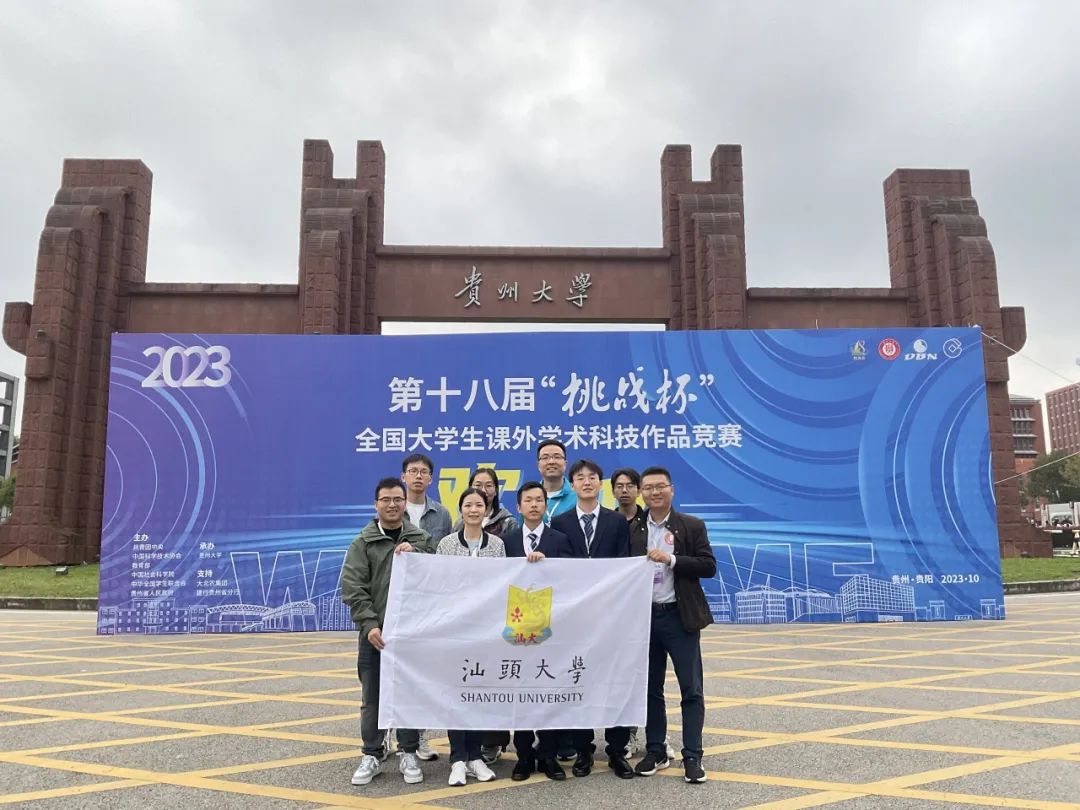生物医学工程系课程简介
Descriptions for STU-BME Required Courses (specific to BME)
BME1101A: Biomedical Engineering (5 credits)
With this course, students will begin their formal journey and enrichment in the field of biomedical engineering to gain a better understanding of what to expect as a student in BME at STU and as a practicing biomedical engineer in your future careers. On our journey, we will explore the three core disciplines of BME at STU: medical equipment, biomechanics and biomaterials, and medical informatics. We will also begin to develop the necessary scientific research and experimental skills to be a successful BME student at STU. Finally, we will explore the relevant ethical, economic, legal, and social implications of our future contributions in BME.
BME1108A: Introduction to Computers and Programming (4 credits)
This course focuses on using your computer to solve engineering problems through computer programming. Many engineering problems and biomedical research activities involve repetition, a constant cycle of acquiring data and performing the same or similar calculations on it over and over again. Using computers to automate this process saves time and minimizes human error. The data boom of the 21stCentury makes the ability to develop computer programs a critical skill for any engineer’s toolbox.
BME1107A: Electrical Engineering (3 credits)
The aim of this course is to make you competent in analyzing electrical circuits and performing basic electrical measurements to verify circuit concepts experimentally.
Fundamentals of Biomedicine (5 credits)
Fundamentals of Biomedicine is a novel and unique approach to introducing undergraduate students in biomedical engineering to the fundamental content knowledge necessary to address problems related to life sciences. It provides the basis for later courses in Quantitative Cell Biology and Quantitative Physiology in the Department of Biomedical Engineering at STU. In this course, students will learn key concepts related to the fields of cell biology, biochemistry, and human physiology. They will also engage in 4 experiential experiment sessions related to the lecture content, as well as frequent team-based learning activities designed to address current problems associated with lecture topics and related to biomedical engineering applications.
The ultimate goal of this course is to give students the foundation to understand the underlying principles that govern life and the ability to apply this knowledge to the wide variety of problems they will encounter as biomedical engineers.
Circuits & Systems for Biomedical Engineers (4 credits)
Students will learn circuits and linear systems concepts necessary for analysis and design of biomedical systems. Theory will be motivated by examples from biomedical engineering. Topics covered include electrical circuit fundamentals, operational amplifiers, frequency response, electrical transients, impulse response, transfer functions, and convolution, all motivated by circuit and biomedical examples. Elements of continuous time domain- frequency domain analytical techniques will be developed.
Introduction to Biomechanics (4 credits)
The first three mechanical engineering classes one would take are: statics, dynamics, and mechanics of materials (deformable). Here, we study the most important fundamentals of these topics and work to get a sense of how they are considered in biological tissues and systems, micro- or macro- scopic.
Quantitative Cell Biology (4 credits)
The course is designed to provide a foundation of basic principles for modeling cell biology problems. We will discuss quantitative or semi-quantitative analysis and approaches applicable to a number of important topics in cell biology, with a central notion best described by: “an appropriate application of a relatively small number of fundamental physical models can serve as the foundation of whole bodies of quantitative biological intuition, broadly useful across a wide range of biological problems.”
Biomedical Undergraduate Lab (4 credits)
This course provides an experiential introduction to experimentation in circuits, systems, physical chemistry, thermodynamics, and mechanics with emphasis on biological applications. Lectures and laboratories on lab safety, measurement and analysis of physiological systems; human anatomy; rate of reaction; heat of reaction; whole body, tissue, and cellular mechanics; probability and statistical analysis. It also involves a team-based, student-proposed semester project utilizing skills learned in the laboratory.
Introduction to Biomedical Design (4 credits)
This course, intended for 3rd-year undergraduates majoring in biomedical engineering, will expose students to key aspects of the process of designing a biomedical device or biotechnology product, and provide them with the technical fundamentals to perform design. What the students learn in this course is foundational to the design experience in the 4th-year of the curriculum (Biomedical Design I & II).
Quantitative Physiology (4 credits)
Quantitative Physiology provides learning opportunities for advanced undergraduate and graduate students to understand and develop competencies in a quantitative, research oriented, systems approach to physiology. Systems examined include cellular, musculoskeletal, cardiovascular, respiratory, neurologic and reproductive. Mathematical models and engineering analyses are used to describe system performance where applicable. Lectures and problem sessions are used for instruction, and performance is based on homework problem sets and examinations.
Biomedical Signals and Systems (4 credits)
Theory and practice of signals and systems in both continuous and discrete time domains with examples from biomedical signal processing and control. Continuous-time linear systems: convolution, steady-state responses, Fourier and Laplace transforms, transfer functions, poles and zeros, stability, sampling, feedback. Discrete-time linear systems: Z transform, filters, Fourier transform, signal processing. This class will make extensive use of Matlab projects.
Biomedical Instrumentation & Design (4 credits)
This course is primarily an immersive, experiential laboratory course. Occasional lectures will cover the following topics and also introduce the laboratory activities: overview of biomedical instrumentation, instrumentation basics, circuit basics, operational amplifiers, active filters, analog-digital conversion, sampling, signal processing, spirometry, electrocardiography (ECG), pulse-oximetry.
Imaging Physics (4 credits)
Principles of modern medical imaging systems. For each modality the basic physics is described, leading to a systems model of the imager. Fundamental similarities between the imaging equations of different modalities will be stressed. Modalities covered include radiography, x-ray computed tomography (CT), NMR imaging (MRI) and real-time ultrasound.
Biomedical Design Parts I & II (10 credits)
Two semester course -- Interdisciplinary groups design-build-test biomedical instrumentation projects. Projects are sponsored by SUMC clinicians, engineering research labs, and local industry. Students are exposed to the entire design process: design problem definition, generation of a design specification, documentation, design review process, prototype fabrication, testing, calibration, and design-to-market strategies.




